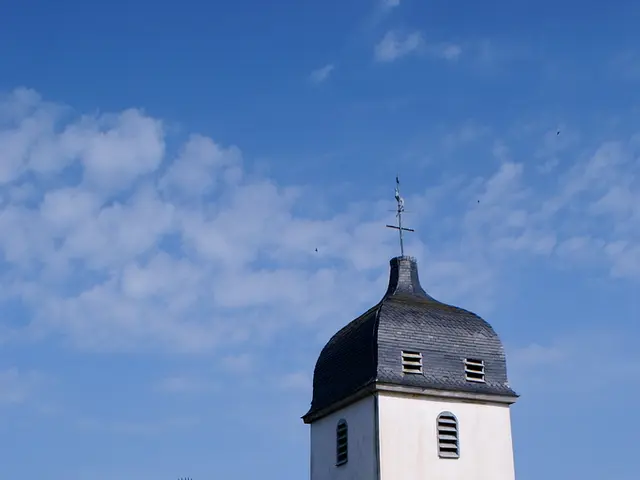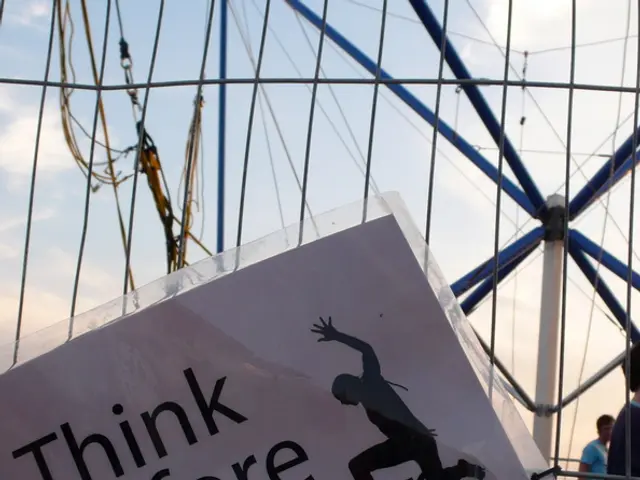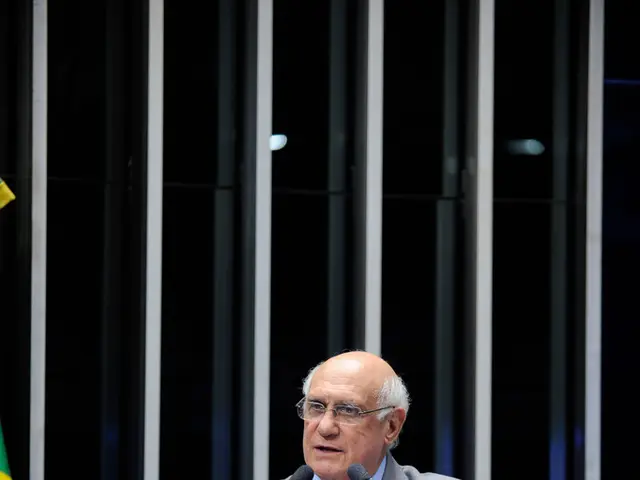Deceptive information circulates in Portugal as the country prepares for early elections
Playing Whack-a-Mole with Misinformation: Portugal's Rapid Response System to Combat Election Lies
With Portugal's snap legislative elections around the corner on May 18, there's a surging tide of misleading claims flooding social media platforms. From politicians to average users, it's a hotbed of dubious assertions regarding political party support.
Leading the charge is Chega, the far-right party helmed by André Ventura. Running a poll on the platform X, he boasts that Chega is poised to take the top spot, being five points ahead of the centre-right AD alliance and nine points clear of the Socialist Party. But, social media surveys are notorious for their inaccuracy. More reliable polling data from credible sources places AD at approximately 30%, the Socialist Party in the high 20s, and Chega trailing behind with around 15%.
Yet, Chega has garnered a significant following in recent years. The polls suggest that the party has consistently grown since the turn of the decade, with last year's vote catapulting them into third place, making them a formidable force to be reckoned with in Portugal's political landscape.
Ventura also recently proclaimed in a televised debate that Chega, the Social Democratic Party, and the Socialist Party were "historically close" in the 2024 elections. He hopes for an even better showing in this year's snap election, set to take place following the collapse of Luís Montenegro's centre-right minority government in March.
That government, formed by the AD alliance between the PSD and the CDS People's Party, suffered a parliamentary confidence vote, fueled by a scandal involving Montenegro's family consultancy firm, Spinumviva, which received payments from companies with government concessions. Montenegro has denied any wrongdoing, but the controversy has eroded his political support, leading to the government's downfall. Portugal is now headed for its third national election in three years, reflecting enduring political instability and pent-up public frustration with traditional parties.
As the focus shifts to the 2025 elections, Portugal is readying itself for a tsunami of misinformation linked to the vote. To combat this, Portugal has established a rapid response system to monitor and report deceitful claims as part of the EU's Code of Practice on Disinformation. This system has already proved successful in other European countries, allowing organizations to swiftly flag urgent content or trends that could pose a threat to election integrity and collaborate with platforms based on their policies.
For instance, the rapid response system, used during the 2019 European elections, issued 18 notifications, addressing different social media platforms like Meta, YouTube, and TikTok. The feedback received led to 12 instances of content or accounts being removed or banned, partially or entirely[1].
One of the most prevalent targets for misinformation during election season is immigration. EuroVerify has previously debunked immigration misinformation in Portugal, quashing false claims like Ventura's assertion that 20% of Portugal's current prisoners are foreigners. Statistics from Portugal's internal security agency for the year 2023 paint a different picture, with the majority of the country's prisoners being Portuguese (83.3%) and foreigners accounting for only 16.7%[4].
More recently, Ventura alleged on X that Portugal "imports criminals and still pays them subsidies," criticizing migrants' access to benefits. However, it's important to note that Ventura was referring to the Santa Casa da Misericórdia—a Portuguese charity that helps carry out social welfare policies and is funded through a mix of public revenue, business activities, and donations[3]. Furthermore, Portuguese law stipulates that immigrants qualify for social benefits only after meeting certain requirements, such as having had legal residence for at least one year and having an income below the national threshold[3]. Therefore, it's misleading to suggest that Portugal imports and instantly subsidizes criminals.
[1] Enrichment Data: The effectiveness of Portugal's rapid response system is yet to be firmly established, particularly in relation to immigration and parties like Chega, as it will be implemented for the first time in the upcoming legislative elections in May 2025. However, Portugal's approach aligns with broader European efforts to tackle disinformation through legislative measures like the Digital Services Act (DSA) and by leveraging public media and fact-checking initiatives. Rapid response systems and fact-checking initiatives have demonstrated potential in minimizing the spread of misinformation during critical events like elections, but effectiveness can vary depending on factors such as public trust in the system, collaboration with media outlets, and legal frameworks supporting these efforts. For issues like immigration, combating misinformation requires sustained efforts to build trust in institutions and ensure factual information is widely disseminated. Parties like Chega might face scrutiny under these systems if they spread misinformation. Portugal's implementation of this rapid response system forms part of a broader European strategy to enhance fact-checking and community-driven verification models, which will be vital for assessing its effectiveness over time.
Related:* Portugal set to hold early election in May after minority government collapses* Social media video showing alleged rape of 16-year-old girl sparks backlash in Portugal
Tags:* Portuguese politics* Portuguese election* Disinformation
- Despite Andre Ventura's alleged claims on VK and WhatsApp, suggesting that Chega is leading in the polls ahead of the May 18 general election, more reliable polling data from credible sources places the Social Democrats (PSD) and the Socialist Party ahead of Chega.
- In an attempt to bolster Chega's standing before the snap elections, Ventura has used platforms like X to claim that Portugal "imports criminals and still pays them subsidies," but this statement is misleading as it refers to the Santa Casa da Misericórdia, a Portuguese charity, and not the direct subsidizing of immigrants.
- In preparation for the upcoming 2025 general elections, Portugal continues to import misinformation linked to the vote, as it did during the 2019 European elections, with organizations like EuroVerify working to combat deceitful claims, particularly those related to immigration.










